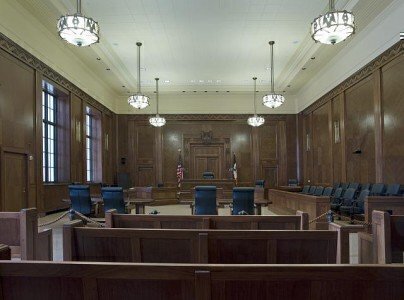On Monday , a trial that will determine the constitutionality of North Carolina’s stringent voting requirements started in a Federal District Court in the state. Judge Thomas D. Schroeder will help to establish new precedent on potentially discriminatory election legislation in North Carolina NAACP v. McCrory, with portions of the Voting Rights Act of 1965 and the 14th and 15th Amendments called into question.
 Some experts believe that this case, or a similar one, could eventually reach the Supreme Court and lead to a resolution of nationwide voting issues in the wake of the Shelby County v. Holder decision.
Some experts believe that this case, or a similar one, could eventually reach the Supreme Court and lead to a resolution of nationwide voting issues in the wake of the Shelby County v. Holder decision.
In 1965, the Voting Rights Act set aside certain states that were historically discriminatory in their voting policies, and established a policy of federal approval of any election laws in those regions. In North Carolina alone, the Justice Department has challenged such legislation over 40 times in the past 30 years. With the Supreme Court striking down the federal approval provision in 2013’s Shelby County decision, the gauntlet was thrown down for conservative states like North Carolina to establish stricter voting requirements, which opponents argue have racially prejudiced motivations.
The specific law under question tightens voters’ access to the polls in multiple ways. North Carolinians can no longer register and vote on the same day but must wait 25 days before approval. Early voting has been limited to 10 days instead of 17, and high school students can no longer preregister. The 2013 law included voter ID requirements, but this provision has been relaxed and the case will be considered without it.
The plaintiffs, led by the North Carolina chapter of the National Association for the Advancement of Colored People, will attempt to show a violation of Section 2 of the Voting Rights Act, which states that “No voting qualification of prerequisite to voting…shall be imposed…to deny or abridge to right of any citizen of the United States to vote on account of race or color.” In case filings, the plaintiffs argue that the disputed provisions, “in interaction with existing societal and economic conditions, result in denying African-Americans meaningful access to the political process.” To back up this statement, they explain that during the 2012 election cycle, 70 percent of African-American voters employed “early-voting opportunities.”
According to the plaintiffs, the subsequent “dilution of African American voting strength” violates not only the Voting Rights Act, but the 14th and 15th Amendments, which established voting protections for United States citizens. The latter amendment, passed in the aftermath of the Civil War, states that the right to vote “shall not be denied or abridged…by any state on account of race, color, or previous servitude.”
Furthermore, the plaintiffs will attempt to show intent to discriminate on the part of the Republican state legislature, as opposed to an unintended effect. This burden would be challenging to meet, but if successful, could lead to a reconsideration of the Supreme Court’s Shelby County decision. Much easier to prove are the contentions of ensuing racial effects of the North Carolina law.
The state, for its part, argues that the 2013 law was passed to reduce voter fraud and administrative burdens. Roy Cooper, North Carolina’s attorney general, wrote in a brief that the plaintiffs were looking for “affirmative action” in the election process through “practices…favored by political organizations dedicated to maximizing Democratic turnout.”
On the shoulders of Judge Schroeder is the future of voter rights in North Carolina, and possibly the entire United States.
Will Field is an intern at the National Constitution Center.







